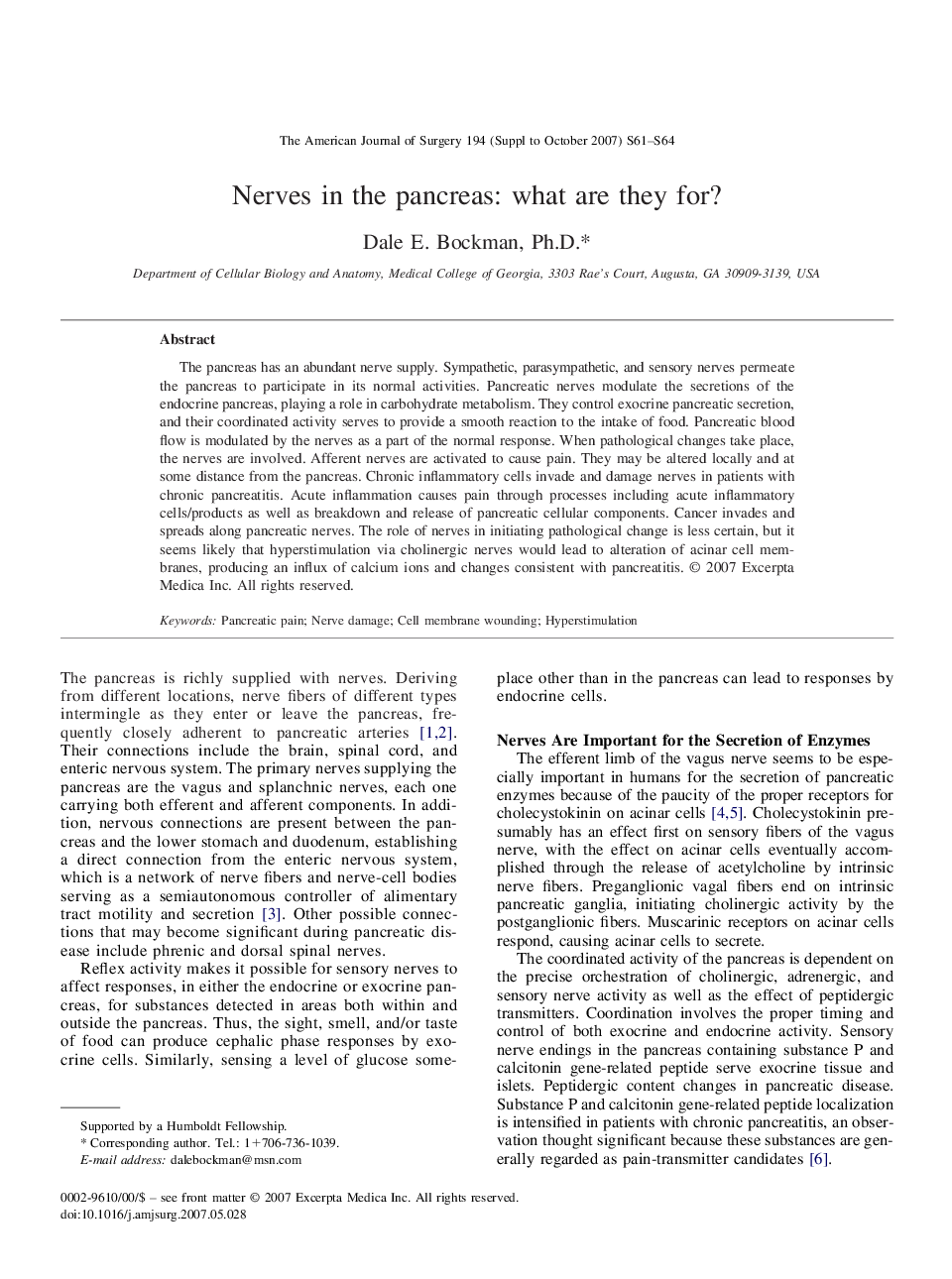| Article ID | Journal | Published Year | Pages | File Type |
|---|---|---|---|---|
| 4281183 | The American Journal of Surgery | 2007 | 4 Pages |
The pancreas has an abundant nerve supply. Sympathetic, parasympathetic, and sensory nerves permeate the pancreas to participate in its normal activities. Pancreatic nerves modulate the secretions of the endocrine pancreas, playing a role in carbohydrate metabolism. They control exocrine pancreatic secretion, and their coordinated activity serves to provide a smooth reaction to the intake of food. Pancreatic blood flow is modulated by the nerves as a part of the normal response. When pathological changes take place, the nerves are involved. Afferent nerves are activated to cause pain. They may be altered locally and at some distance from the pancreas. Chronic inflammatory cells invade and damage nerves in patients with chronic pancreatitis. Acute inflammation causes pain through processes including acute inflammatory cells/products as well as breakdown and release of pancreatic cellular components. Cancer invades and spreads along pancreatic nerves. The role of nerves in initiating pathological change is less certain, but it seems likely that hyperstimulation via cholinergic nerves would lead to alteration of acinar cell membranes, producing an influx of calcium ions and changes consistent with pancreatitis.
